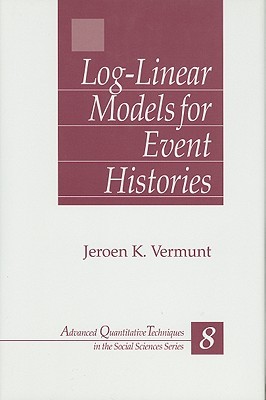
- We will send in 10–14 business days.
- Author: Jeroen K Vermunt
- Publisher: SAGE Publications, Inc
- ISBN-10: 0761909370
- ISBN-13: 9780761909378
- Format: 15.8 x 23.1 x 3.3 cm, hardcover
- Language: English
- SAVE -10% with code: EXTRA
Reviews
Description
Event history analysis has been a useful method in the social sciences for studying the processes of social change. However, a main difficulty in using this technique is to observe all relevant explanatory variables without missing any variables.
This book presents a general approach to missing data problems in event history analysis which is based on the similarities between log-linear models, hazard models and event history models. It begins with a discussion of log-rate models, modified path models and methods for obtaining maximum likelihood estimates of the parameters of log-linear models. The author then shows how to incorporate variables with missing information in log-linear models - including latent class models, m
EXTRA 10 % discount with code: EXTRA
The promotion ends in 18d.21:24:30
The discount code is valid when purchasing from 10 €. Discounts do not stack.
- Author: Jeroen K Vermunt
- Publisher: SAGE Publications, Inc
- ISBN-10: 0761909370
- ISBN-13: 9780761909378
- Format: 15.8 x 23.1 x 3.3 cm, hardcover
- Language: English English
Event history analysis has been a useful method in the social sciences for studying the processes of social change. However, a main difficulty in using this technique is to observe all relevant explanatory variables without missing any variables.
This book presents a general approach to missing data problems in event history analysis which is based on the similarities between log-linear models, hazard models and event history models. It begins with a discussion of log-rate models, modified path models and methods for obtaining maximum likelihood estimates of the parameters of log-linear models. The author then shows how to incorporate variables with missing information in log-linear models - including latent class models, m


Reviews